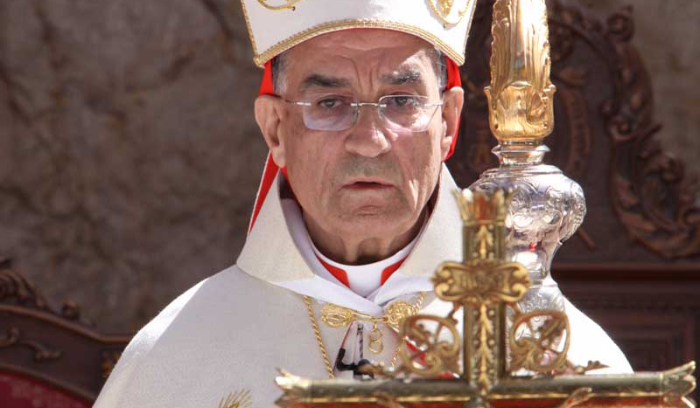
Maronite Patriarch Bechara al-Rai. (Credit: NNA)
BEIRUT — Maronite Patriarch Bechara al-Rai on Sunday criticized Parliament's failure to elect a new president for Lebanon despite there being "two main, competent candidates," according to the state-run National News Agency.
Lebanon has had no president since Michel Aoun's six-year term ended on Oct. 31 2022, with no successor in place. Amid political deadlock over candidates, Parliament has failed to elect a new president despite having held 12 sessions so far to vote for one.
Speaking in his weekly Sunday sermon, Rai said: "Could someone explain why Parliament hasn't managed in its successive sessions to elect a president according to Article 49 of the constitution, while there are two main, competent candidates, as appeared in the latest session on June 14?"
Hezbollah supports the candidacy of Marada Movement leader Sleiman Frangieh and has called for dialogue to break the deadlock, though has refused to discuss different candidates.
Opponents of Hezbollah support the candidacy of former minister and current IMF official Jihad Azour, while refusing to hold discussions on the matter with Hezbollah.
At June 14's voting session, Azour garnered 59 votes against Frangieh's 51 votes.
Parliament Speaker Nabih Berri has not yet set a date for the next voting session.
"Either one of them will succeed, or none will succeed, but after three consecutive sessions at most, an agreement will be reached on a third through a responsible dialogue," Rai added. "Can anyone tell us why the quorum was abolished in that session, which was almost decisive?"
French special envoy Jean-Yves Le Drian visited Beirut last week to sound out the various political parties and attempt to map a way out of the presidential impasse. He is set to convene the political actors to an informal dialogue in September.
"Is there anyone who can explain to us the purpose of delaying this central process for the establishment of state institutions to the month of September? Is it the August holiday for the MPs — for recreation at sea, mountains and travel, while people are dying of hunger and the state is in chaos?"
In mid-July, the so-called Group of Five — representatives of France, the US, Saudi Arabia, Qatar and Egypt — met in Doha to discuss Lebanon.